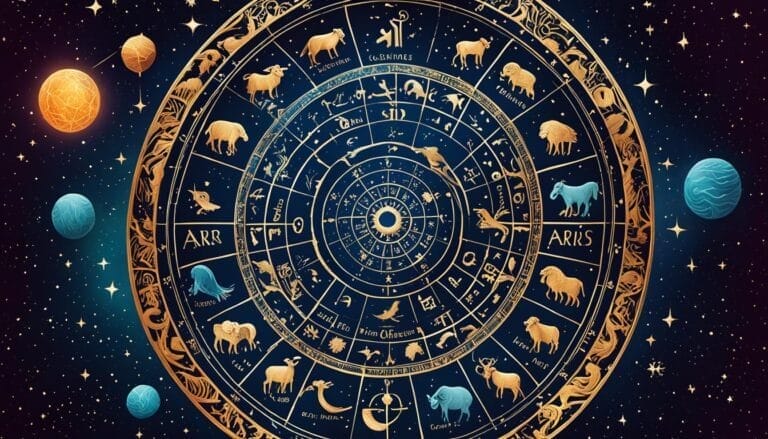Introduction to Astrosophy
This relatively obscure branch of knowledge, a blend of astronomy and spirituality, seeks to explore the cosmic influence on human life and consciousness. Born from the teachings of Rudolf Steiner in the early 20th century, astrosophy bridges the empirical with the esoteric, positing that celestial bodies and their movements bear profound significance on both the individual and collective levels.
You might find yourself intrigued by the possibility that the universe’s vast expanse holds keys to understanding deeper philosophical truths about our existence. As you contemplate the stars, consider this your invitation to explore how astrosophy attempts to decode the celestial language and what it could mean for our place in the cosmos.
In Essence
- Astrosophy is a blend of astronomy and philosophy that emerged in the early 20th century through the work of Rudolf Steiner.
- It interprets the Zodiac as soul-guiding symbols and has influenced fields such as education, art, and therapy.
- Astrosophy is grounded in cultural influences and has evolved as a tool for personal development.
- It recognizes the interconnectedness of all things, views celestial bodies as symbols with deep meanings, and seeks alignment between the soul’s purpose and the cosmic order.
Origins of Astrosophy
Astrosophy, blending the cosmic insights of astronomy with the introspective qualities of philosophy, emerged in the early 20th century through the work of Austrian philosopher and social reformer Rudolf Steiner.
You’ll find that the astrosophic influences in his teachings delve into a profound interpretation of the Zodiac, viewing celestial patterns as soul-guiding symbols rather than mere predictive tools. This approach encourages you to consider the spiritual dimensions of cosmic phenomena, a stark contrast to traditional astronomy’s empirical focus.
As you explore its modern applications, you’ll discover that astrosophy has permeated various aspects of contemporary life. It’s not just about horoscopes; it’s a way to deeply understand human consciousness and its connection to the cosmos, influencing fields such as education, art, and even therapy.
Key Philosophical Principles
Exploring the key philosophical principles of astrosophy, you’ll find that the cosmos not only shapes our external world but also mirrors the inner landscape of human consciousness. Here’s how:
- Cosmic Consciousness: You’re part of a larger whole, with your thoughts and actions resonating within a vast, interconnected universe.
- Metaphysical Cosmology: Delve into the nature of existence, where you consider celestial bodies as more than physical entities—they’re symbols with deep, intrinsic meanings.
- Planetary Influences: Recognize that planets and stars exert a subtle, yet profound, effect on your personal growth and life experiences.
- Inner and Outer Harmony: Strive for alignment between your soul’s purpose and the cosmic order, finding peace in the dance between microcosm and macrocosm.
Astrosophy and Astronomy
While astronomy maps the positions and motions of celestial bodies, astrosophy seeks to uncover the deeper spiritual significance behind these cosmic patterns.

You delve into the mysteries of the universe, mindful that every star you see through the latest telescope innovations is part of a grander, spiritual narrative.
Astrosophy encourages you to reflect on stellar classifications not just as scientific categories but as a cosmic language of sorts, hinting at qualities beyond physical properties.
You’re invited to ponder cosmic distances, realizing that the light-years separating us from the stars aren’t just measures of space, but symbols of the journey of the soul.
In this quest, you marry the empirical rigor of astronomy with the introspective depth of astrosophy, forging a holistic understanding of the cosmos.
Spiritual Dimensions Explored
You’ll discover that astrosophy offers a unique lens, revealing the spiritual dimensions of celestial phenomena that often remain veiled to the naked eye and conventional science. Through this exploration, you’ll connect with cosmic consciousness and find esoteric astrology not just as a system of knowledge, but as a path to personal insight and growth.
Here’s what you can look forward to:
- Understanding Cosmic Patterns: Grasp the significance of planetary alignments and their influence on your spiritual journey.
- Esoteric Astrology: Learn how this ancient wisdom provides deeper insights into your personality and destiny.
- Integrating Spiritual Practices: See how meditation and reflection align with cosmic rhythms to enhance your spiritual practices.
- Experiencing Oneness: Feel a sense of unity with the cosmos, fostering a profound connection to all existence.
Astrosophy in the Real World
Astrosophy transcends theoretical concepts to offer practical guidance for navigating life’s challenges with celestial wisdom. You might’ve heard misconceptions about astrosophy being mere superstition or pseudoscience. But in reality, it’s grounded in rich cultural influences and has evolved into a tool for personal development.
Through its practical applications, you can tap into a deeper understanding of your inner self and the world around you.
It’s more than just horoscopes; it’s about the interplay between cosmic forces and human experiences. By studying planetary movements and their archetypal symbolism, you’ll find insights into your relationships, career, and spiritual journey.
Whether you’re a skeptic or a seeker, incorporating astrosophy into your daily life can open new perspectives and foster a sense of connectedness with the universe.


